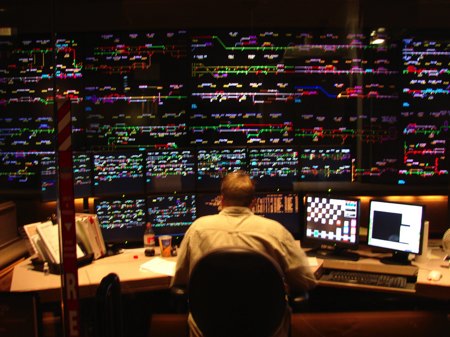Submitted by Peter-Paul Wong on
The weather last Saturday (the one before the Thanksgiving holiday) presented a perfect day to stay inside. With severe thunderstorms giving the Austin area the much needed rain it deserved, I took the liberty of enjoying my new found hobby: coffee roasting. So I roasted some beans, ground them up, and sat down to read the Wall Street Journal with a fresh cup in hand (It really does produce a smooth cup, you should try it if your interested). After a few articles in the Life and Culture Section I came across this essay over the subject of automation. From first glance, I thought oh cool a piece over automation, a subject I loved. However upon reading the essay, I found the author only chose to point out the negatives of the issue, neglecting the other side of the aisle. While the author argues that automation has taken away from professional and specialized skills, as an aspiring professional in the field of technology, I was shocked that he neglected to mention how automation is also paving the way for a better and more efficient society.
For a clearer definition, the Merriam-Webster dictionary defines automation as an "automatically controlled operation of an apparatus, process, or system by mechanical or electronic devices that take the place of human labor." In our country today, automation has become a bittersweet subject. From corporations using automation to replace workers in response against touchy subjects such as the minimum wage to the replacement and retirement of jobs in certain sectors that are heavily manual labor based, the question of how much progress is too much progress is the central and highly controversial topic.

From my own perspective, I've had the pleasure of interning through college in an industry that is greatly being improved by automation: the railroad industry. From talking in casual conversations over my work I always get surprised looks. With curious and sarcastic questions such as "what do computers have to do with moving freight?" and "What year is it? 1862?" thrown back at me. Many of the conversations come with intrigue, "How many workers does it take to nail in spikes or what's the inside of a caboose like?" I hate to say they're not around anymore. After a few laughs and shakes of my head, I confirm with them that much of the work of the rail industry has been automated. As one frequently hears on the railroad, when it comes to technology, automation phases out repetitive tasks and labor and creates new and better specialized jobs for the American workforce. From the automation of spike driving to the systematic automation of calling crews to report to duty at their respective terminals, technology in the freight industry much like other industries from food service to financial service has paved way for better performance results and a new type of workforce.
While the debates over automation will continue in the years to come, as members of the CS community, we know that the debate won't stop and that "progress" will be continued to be made. As a society we're going to have to reach a happy medium, but when it comes to even deeper topics such as educating a skilled workforce to perform these tasks and tackling the subject of the minimum wage, those are topics of a whole other conversation on their own accord. Hence, the only solution is to keep moving forward.
So although automation may phase out existing jobs in the workforce, the issue at hand many discuss is an even bigger one than automation itself. It's a structural change in society that we must come together as a whole and manage so that the American workforce is the future can be fully equipped to be a part of.







